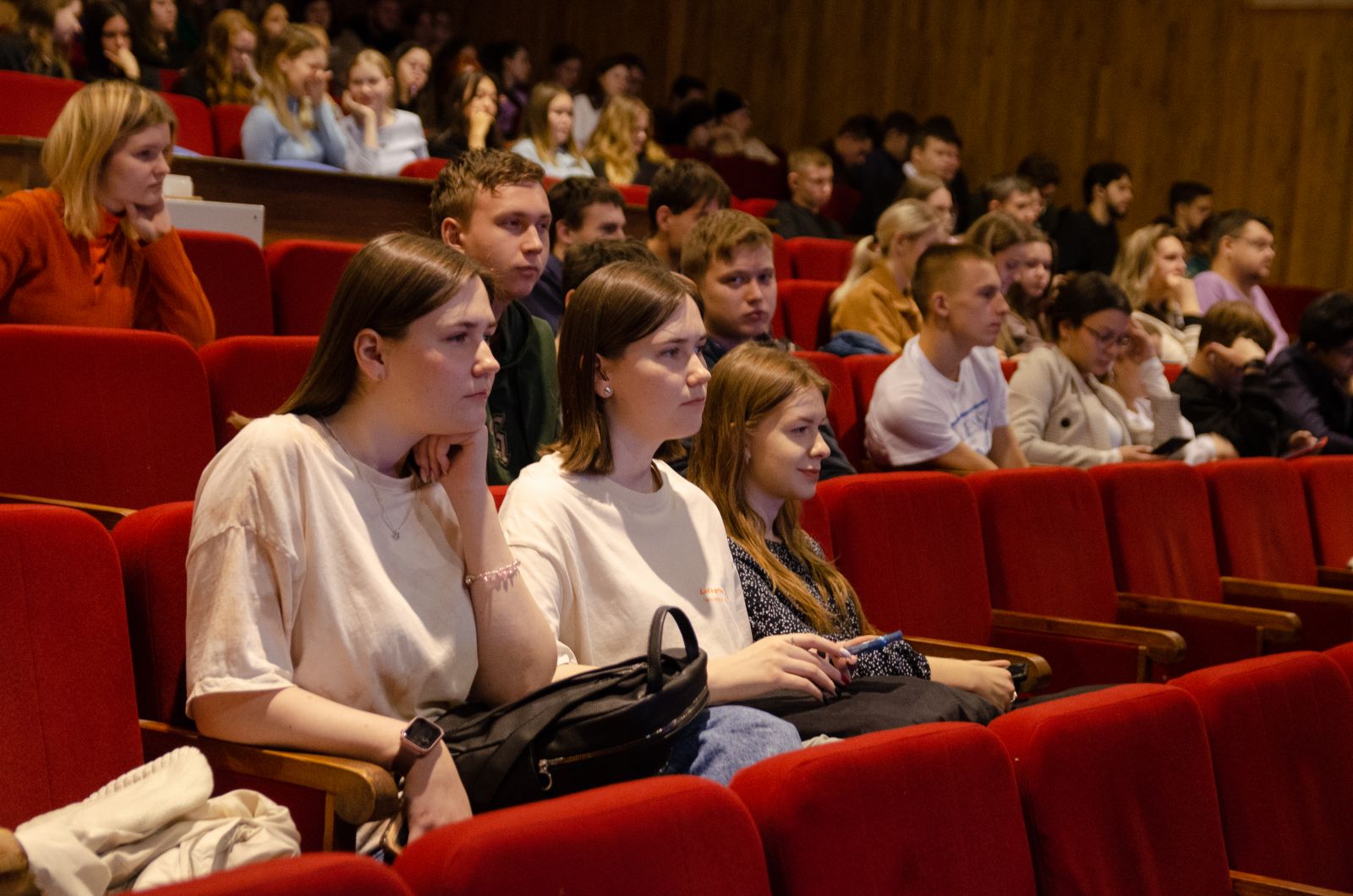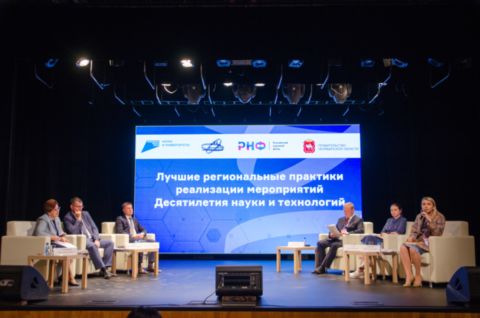In 2023, Science Days are dedicated to the contribution of regions to ensuring the technological sovereignty of our country, the development of interregional partnerships, and the popularization of scientific research results. Scientists from the Chelyabinsk, Kurgan and Sverdlovsk regions gathered to discuss the most significant issues in the development of science and technology.
The honorary guests of the forum were representatives of the Ministry of Science and Higher Education of the Russian Federation, the Government of the Novosibirsk and Sverdlovsk regions, the Office of the Plenipotentiary Representative of the Russian President to the Ural Federal District, and the Ural Branch of the Russian Academy of Sciences.
The first event of the day two was the panel discussion on the topic "Leadership in Science. Women’s Point of View", where prominent representatives of the fair sex spoke about the role of women in science.
"The share of women researchers in the South Ural region is 36%, which is about 3000 people, including 75 doctors of sciences and 402 candidates of sciences," said Irina Gekht, First Deputy Governor of the Chelyabinsk Region, Head of the 'Women’s Movement of United Russia' project in the Chelyabinsk Region. "Women are also heads of leading scientific schools in the South Ural region: 6 scientific schools out of 17 are run by women, which is also a little more than 30%. Women scientists conduct research in such areas as food and biotechnology, media communications, they study innovative approaches in physical and musical education."

Marina Potapova, SUSU Vice-Rector for Education, shared her opinion about the presence of gender in choosing a profession:
"Reflecting on whether there is gender in science and management, we studied the staffing of key industrial enterprises in the Chelyabinsk Region. It was noted that, for example, such enterprises as KONAR industrial group and the ChKPZ (Chelyabinsk Forging and Press Plant) group are mostly run by men, and this is natural. But next to every CEO there is a woman who implements strategic goals and deals with tactics. For us, the image of any enterprise is the image of a family, which has deep roots in our mentality. We have this hierarchy, and it will be great if it continues."
At the lecture on the "Scientific Leadership through the Lens of Personality", Irina Avdekova, a lecturer at the Znanie (Knowledge) Russian Society, told schoolchildren about the phenomenon of leadership and shared her life and professional experience. In a dialogue format, schoolchildren, together with Irina, answered the questions about the reasons to be a leader and who a scientific leader is.
The work of 9 scientific schools took place. SUSU scientific schools were represented by about 70 students and university teachers.
As part of the master class, Aleksandr Smykov, project manager of the Technoplatform-2035 REC, told students what popular science presentations are, what is special about them, and what they should encourage listeners to do. Nikita Savosteenko, senior lecturer at the SUSU Department of Electric Drive, Mechatronics and Electromechanics, organizer of the UMNIK competition, explained how to become an UMNIK. Iurii Kapeliushin and Ruslan Peshkov became speakers and moderators of the round table on the "Dynamics of Thermophysical Processes in Energy Systems".
At the panel discussion on the "Best Regional Practices for Implementing Events of the Decade of Science and Technology," Viacheslav Khalamov, Head of the Regional Centre for Technical Creativity of the Chelyabinsk Region, curator of the Quantorium network of children’s technology parks in the South Ural region, shared the current state of work of educational institutions:
"We work with schoolchildren, and our main task is career guidance and introducing children to the real production sector. We train applicants for vocational education institutions and universities from very young technicians. In recent years, we have been united with science in terms of its practical application by our industrial partners. We have more than forty of them: Konar, ChKPZ, ChTPZ (ChelPipe), MECHEL, Magnezit, Metran, and others. Every year, we add the topics into our educational programs that our graduates, university applicants, and future specialists of these enterprises will need in the future."
Deputy Regional Director of the National Priorities Autonomous Nonprofit Organization Roman Kamaev told the audience about the initiatives within the framework of the Decade of Science in Russia and demonstrated the work of the business card of the decade − the наука.рф portal, where everyone can find simple answers to complex questions related to science.
"We can sum up some results over the past two years and outline plans for the future. It is very important for us to receive feedback on the population’s attitude towards projects, for which we conduct a lot of sociological research. We can say that now the public’s awareness of the events of the Decade of Science is increasing and the desire of parents to organize the future of their children connected with science is also growing," noted Roman Kamaev.




